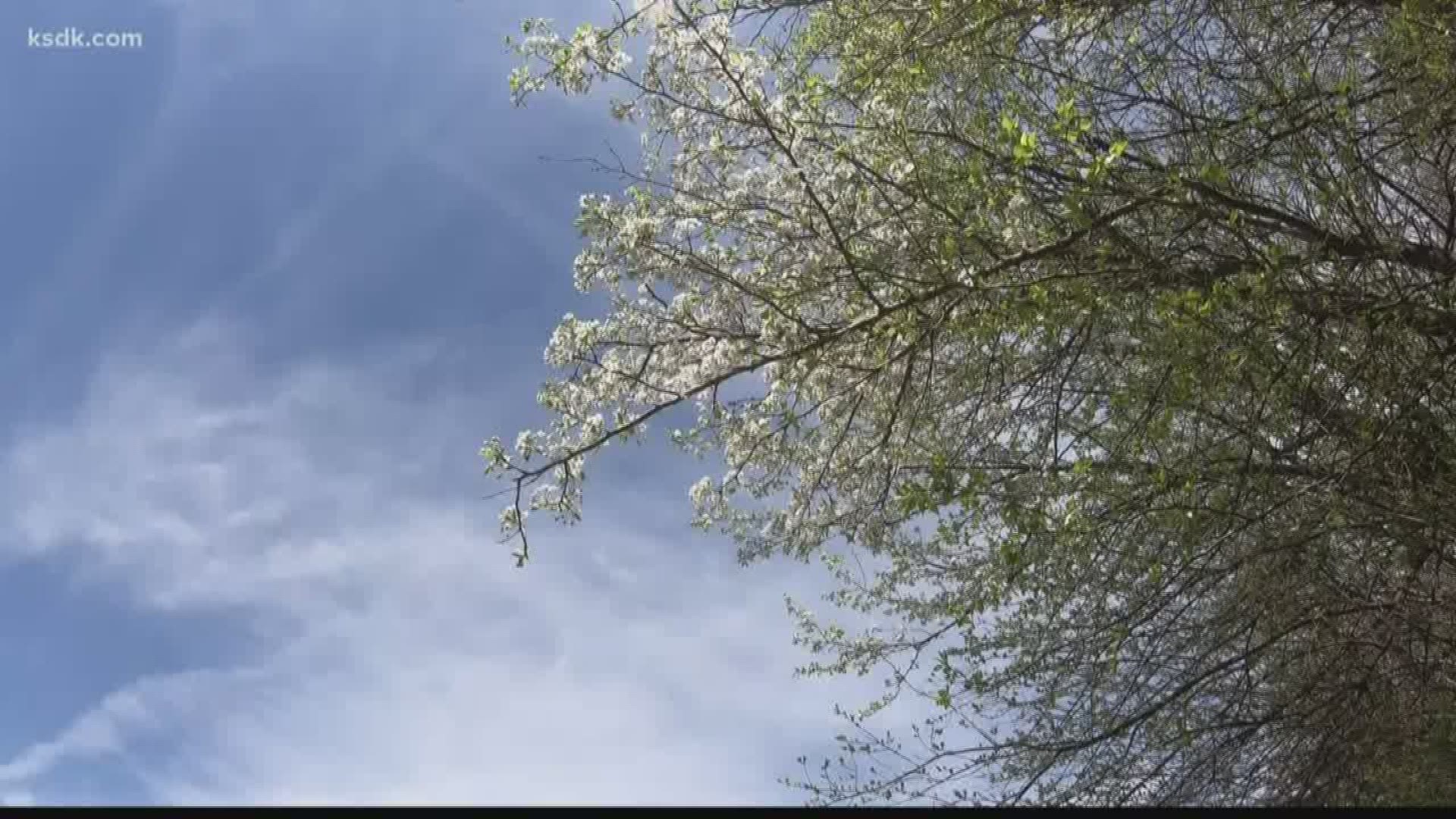ST. LOUIS — Sunshine and warmer temperatures have people going outside to soak it all in. But this time of year, that's not all outdoor revelers are soaking up. Tree pollen counts are high in St. Louis and spring allergy season is just getting started.
"We're just at the start of spring pollen season," explained allergy and immunology physician Dr. Kim Waterhouse with SSM Health Medical Group.
The start of any allergy season means more calls with complaints like those of St. Louis County resident, Kim Yonko.
"They started yesterday," Yonko told 5 On Your Side. "I've had a headache behind my right eye and a runny nose."
Yonko is only suffering from a few symptoms, but Dr. Waterhouse said there are lots more.
"Overall, people can just feel very itchy," she explained.
With COVID-19 on everyone's mind, Yonko said it's hard not to panic when you're not feeling 100%.
"Like most people, I think you panic at first. So, I take a deep breath and think about the symptoms," Yonko said.
Luckily Dr. Waterhouse said the signs of COVID-19 and allergies are rather different.
"Patients with COVID-19 typically start off just not really feeling well. They might be more tired, have some body aches, muscle aches and fever. Those are symptoms we do not see with seasonal allergies."
One symptom that does overlap a little with COVID-19 is coughing.
"But that cough tends to occur mostly when you first lay down at night and when you first get up in the morning," Dr. Waterhouse explained. "And it should not be very severe."


There are concerns about ibuprofen and COVID-19, but Dr. Waterhouse said there are no reports of issues with common allergy medicines.
"Anti-histamines such as Zyrtec or Allegra should still be safe to take," she said.
There also have been concerns about using steroid inhalers and increasing individuals' risk of contracting COVID-19. She said it's best to keep using them as prescribed.
"Patients with controlled asthma do better when battling a respiratory disease," she said.

